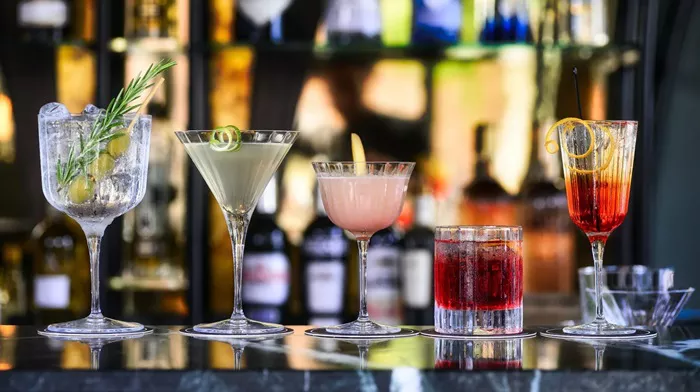Exploring the depths of Mexico’s rich cultural heritage and vibrant spirit traditions, one often encounters the tantalizing question: Is mezcal the same as tequila? While these two agave-based liquors share certain similarities, they boast distinct characteristics that set them apart, weaving narratives of tradition, terroir, and taste. Delving into their origins, production methods, flavor profiles, and cultural significance unravels a captivating tale of craftsmanship and heritage.
Origins and Heritage: Unraveling the Historical Threads
To comprehend the essence of mezcal and tequila, one must journey through the annals of history where their roots intertwine and diverge. Mezcal, with a legacy dating back to pre-Columbian times, epitomizes the ancient art of distillation in Mexico. Its origins can be traced to the agave plant, revered by indigenous civilizations for its spiritual, medicinal, and ritualistic significance. On the other hand, tequila emerges as a modern offspring, originating specifically from the blue agave plant in the region of Tequila, Jalisco. Despite sharing a common lineage, the evolution of distinct production regions and techniques has shaped their unique identities.
Production Methods: Crafting Liquid Elixirs
Central to understanding the divergence between mezcal and tequila is the intricate alchemy of their production methods. Both spirits are derived from agave plants, yet it is the nuances in cultivation, harvesting, and distillation that impart distinct flavors and characteristics. Mezcal, traditionally crafted through artisanal techniques, embraces a labor-intensive process where agave hearts, or piñas, are roasted in earthen pits, imbuing the spirit with smoky undertones. Conversely, tequila production adheres to more standardized methods, with the hearts typically baked in above-ground ovens, resulting in a cleaner, crisper taste profile. This stark contrast in production techniques underscores the unique sensory experiences offered by each spirit.
Terroir: Embracing the Essence of Origin
The concept of terroir, encapsulating the environmental factors that influence agricultural produce, emerges as a defining factor in the divergence of mezcal and tequila. Mezcal production spans various regions across Mexico, each characterized by distinct microclimates, soil compositions, and agave varietals, culminating in a diverse array of flavor profiles. From the rugged terrains of Oaxaca to the verdant landscapes of Durango, each mezcal-producing region infuses the spirit with its terroir-driven essence, offering a sensory voyage through Mexico’s geographical tapestry. Conversely, tequila’s designation to the Jalisco region and select areas of surrounding states imparts a more uniform flavor profile, albeit with variations influenced by altitude and soil composition. Thus, while both spirits derive from agave, their terroir-driven nuances serve as a testament to the rich tapestry of Mexico’s agave-growing regions.
See Also: what is a good tequila for margaritas
Flavor Profiles: A Symphony of Senses
At the heart of the debate surrounding mezcal and tequila lies the exploration of their distinctive flavor profiles, each offering a symphony of senses that captivates connoisseurs and novices alike. Mezcal, with its artisanal production methods and diverse agave varietals, boasts a complex flavor spectrum characterized by earthy notes, hints of smoke, and botanical undertones. This multifaceted palate is further enriched by the regional nuances imparted by varying production techniques and terroirs, inviting enthusiasts on a sensorial journey through Mexico’s cultural landscape. In contrast, tequila’s flavor profile tends towards a more refined and uniform taste, characterized by floral, citrus, and herbal notes, with expressions ranging from the youthful vibrancy of blanco to the mellow depth of añejo. While both spirits offer an exploration of agave-derived delights, it is their divergent flavor profiles that underscore their individuality and allure.
Cultural Significance: Spirits of Tradition and Celebration
Beyond their sensory delights, mezcal and tequila embody the spirit of tradition, celebration, and community that permeates Mexican culture. Mezcal, deeply rooted in indigenous rituals and folklore, holds a sacred place in ceremonial practices, symbolizing a connection to the land and ancestral heritage. Its artisanal production methods and regional diversity reflect a commitment to preserving age-old traditions amidst a rapidly changing world. Similarly, tequila’s cultural significance extends beyond its consumption, encompassing rituals of harvest festivals, familial gatherings, and national pride. As a global ambassador of Mexican culture, tequila serves as a potent symbol of identity and celebration, fostering camaraderie and conviviality across borders. Thus, while the debate persists over whether mezcal is the same as tequila, both spirits share a common thread of cultural significance that transcends mere classification.
Conclusion: Celebrating Diversity in the Spirit World
In conclusion, the query “is mezcal the same as tequila?” unveils a nuanced narrative that celebrates the diversity and richness of Mexico’s spirit traditions. While both spirits share a common lineage rooted in agave cultivation, their distinct origins, production methods, terroir-driven nuances, flavor profiles, and cultural significance distinguish them as unique entities. Mezcal embodies the artisanal spirit of ancient traditions, weaving a tapestry of regional diversity and ancestral heritage. In contrast, tequila emerges as a modern icon, synonymous with celebration, innovation, and national pride. Ultimately, it is the coexistence of mezcal and tequila, each with its storied past and sensorial allure, that enriches the tapestry of Mexico’s cultural heritage and the global spirit landscape. So, the next time you raise a glass of mezcal or tequila, savor not just the liquid elixir but the centuries-old traditions and cultural legacies that imbue each sip with meaning and magic.


